Peace Education Development Forum for Spreading a Culture of Peace
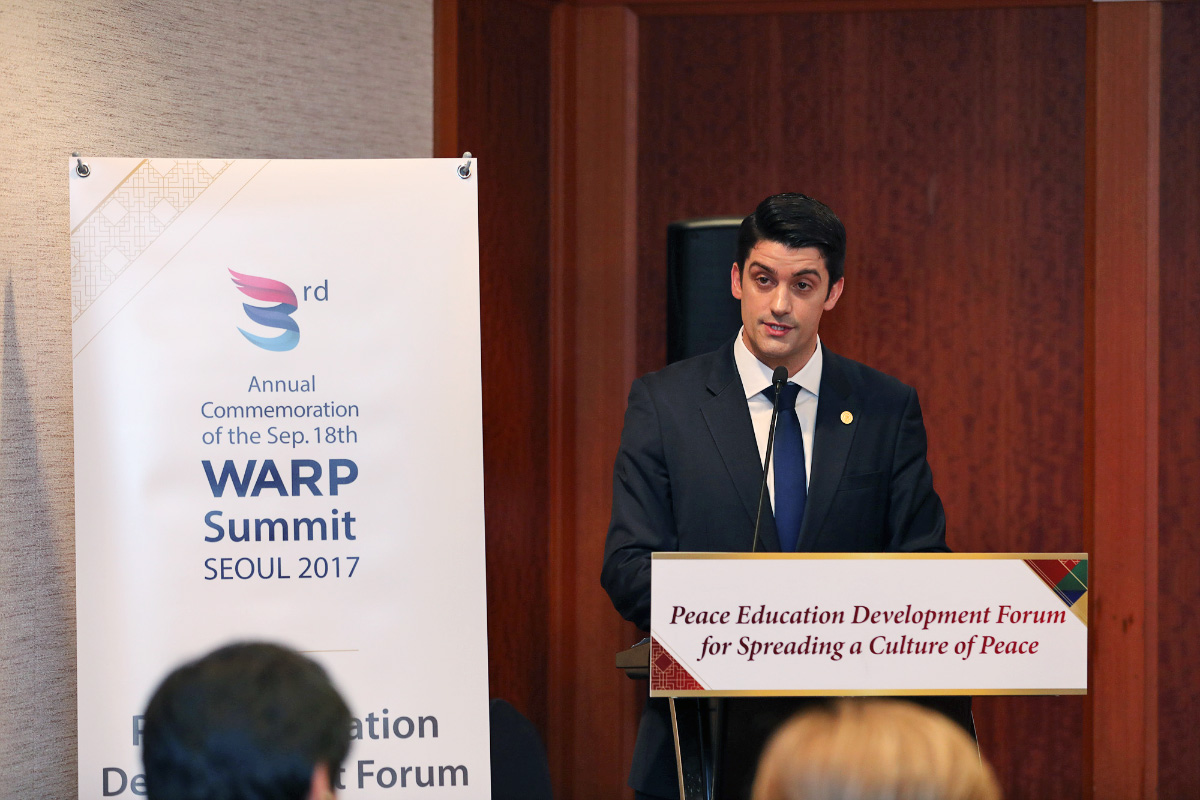
HWPL carries out its Peace Education Initiative, which is formed through the Values of Peace based on the ‘Sanctity of Life’, ‘Loyalty and Filial Piety’, and ‘Co-Existence and Sustainability’, to cultivate and train children and students to become true citizens of peace. In order to prevent and solve the issues of extreme violence and the proliferation of persistent conflicts and disharmony, education is essential, as well as the executive power for its implementation, so that people are given the opportunity to adequately learn these values of peace.
At the 4th HWPL International Law Peace Committee meeting, which was held during the 2nd Annual Commemoration of the WARP Summit last year, a large number of participants came from groups working in the field of education including Ministers of Education Departments worldwide, who attended the Session for the Ministers and Education Specialists for Spreading a Culture of Peace as described in the Declaration of Peace and Cessation of War (DPCW).
They discussed ways to devise education mechanisms for the purpose of the implementation and development of peace as a cultural asset, which is clearly emphasized in the Declaration, stating that the culture of peace is must be acquired, safeguarded and transmitted from generation to generation.
Since that in-depth discussion regarding the necessity of realizing the spreading of a culture of peace in accordance with Article 10 of the DPCW through education last September, these education specialists held several meetings and actual education demonstrations to assist in establishing HWPL Peace Academies worldwide and provide the educational contents for the peace education curriculum. They have been actively cooperating and working to expand the scope of HWPL Peace Education. As a result, the solidarity of schools and educators, which was established to implement the measures and action plans for peace education, was greatly strengthened.
The forum this year focused on confirming the possibility of truly realizing the spreading of a culture of peace through HWPL Peace Education and building solidarity for the joint development of related educational contents. It also discussed the role and duty of educators, schools, and educational institutions, which are the critical entities who will practically implement such education.
Ministers of Education Departments and prominent experts in the field of education, including Hon. Maria Eugenia Barrios Robles de Mejía, Deputy Minister of the Ministry of Education in Guatemala, H.E. Deng Deng Hoc Yai, Minister of the Ministry of General Education and Instruction of South Sudan, and Hon. Floyd O’Brian Green, Minister of State, Ministry of Education, Youth and information, Priority Policies in Jamaica participated in the Peace Education Development Forums I & II, which were successfully held for the promotion of concrete elements of peace to be integrated directly in the education systems worldwide.
Presenting the importance of Peace Education & Introducing the HWPL Peace Academy through an example case
What are the roles of institutions and educators in educating about peace?
When children and youth are faced with situations of conflict, educators need to teach the essential values of peace that lead to changes in their thoughts and behaviors regarding peaceful settlement, so that students can develop their knowledge, attitude, and communication skills based on those values.
Education specialists working with HWPL are creating a culture of peaceful conflict resolution through the peace education that is being developed based on the core values of peace that HWPL pursues, including ‘Sanctity of Life’, ‘Loyalty and Filial Piety’, ‘Co-Existence and Sustainability’, and encouraging students to actively participate. Essentially, such education is aimed at spreading a culture of peace that goes beyond interpersonal relations but also encompasses relations between local communities, nations, and even at the international level.
At the Peace Education Development Forum Part I, Hon. Maria Eugenia Barrios Robles de Mejia, Deputy Minister of Ministry of Education in Guatemala, spoke about the topic of “The Significance of Education and Schooling or Spreading a Culture of Peace.”
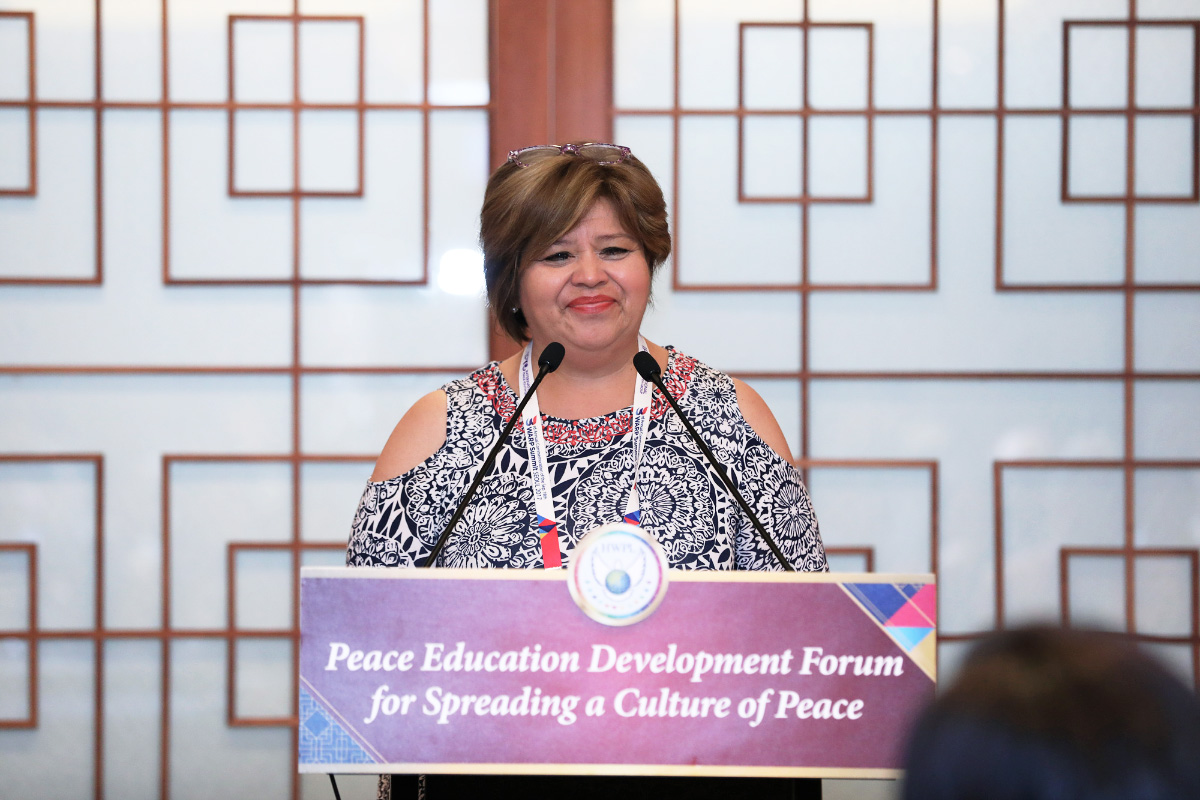
She raised a question of “How are we supposed to teach the new generation that has a constant social change?” and stated that in the current world where social changes are evident, educators must educate their students that the world is diverse and there are cultures as valuable as theirs, enabling them to have the maturity to accept their differences and manage them in a dialogue based on respect.
“Education is the most powerful weapon which you can use to change the world.”
Minister Mejia mentioned a quote from Nelson Mandela and added, “This is true. I believe that education in the world has not been misguided, but needs to be improved. I believe that we have all tried to do our best to educate our people. It’s just that we need to promote a better sense of tolerance, respect, and love for your neighbor, not only in classrooms. We need to do this in our everyday lives leaving theory aside.”
HWPL Chairman Man Hee Lee also gave a speech stressing the importance of the communal role and responsibility of educators.
“I believe that people themselves are peace education because if we ourselves are not peace, then we cannot implement peace education. Who do you think can implement the true, peaceful and harmonious education in the world? It is you. It is you who educate and enlighten the students and citizens of the world with the values of peace.
When you become peace itself and practice peace education in your respective education fields, peace will be achieved. I kindly ask you to educate and create our youth, the future generation, with love and peace.”
He enlightened the audience about the simple fact that training talented individuals who will lead the upcoming future generation is the duty of all educators around the globe, which means that they must accomplish this through instilling the values of peace in the hearts of all students. This is how they are to fulfill their role as the frontrunners in spreading a culture of peace.
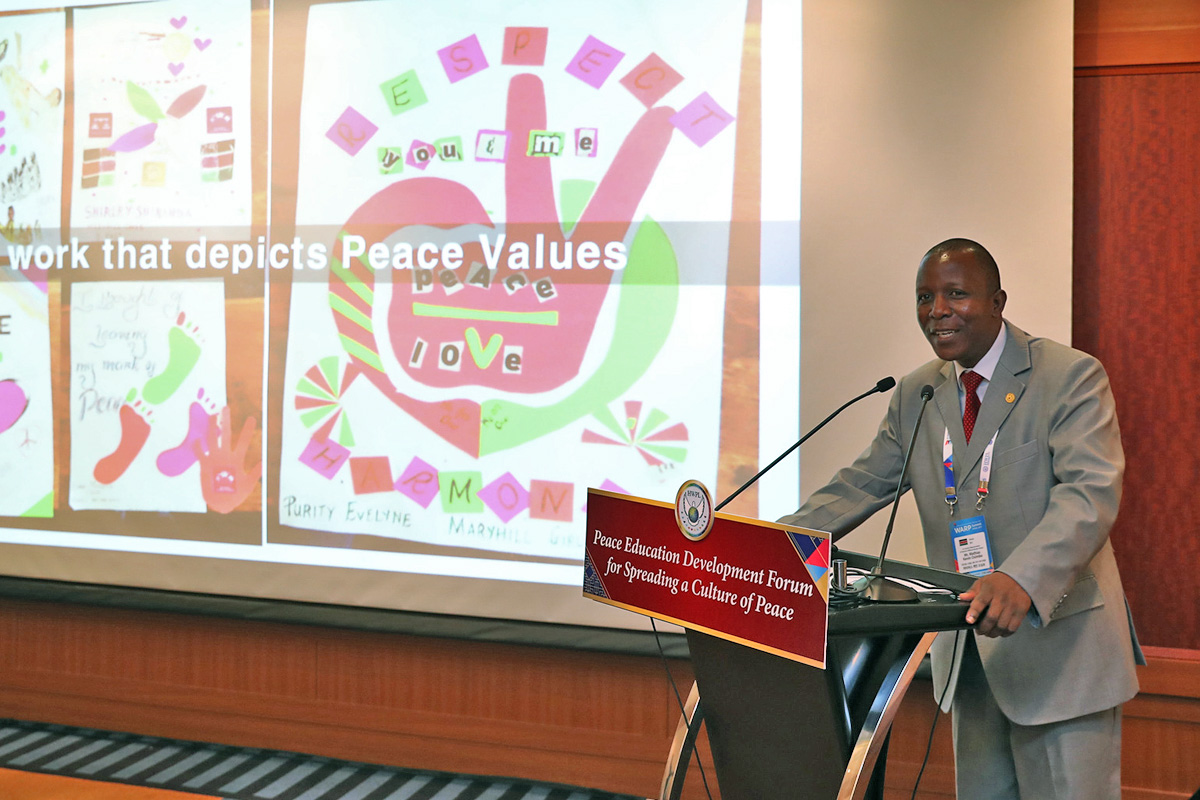
Mr. Mathias Kevin Osimbo, In-Country Representative of Teachers Without Borders, shared his experience of using various peace education textbooks and materials to introduce the concepts of peace to his students, and how he came to the realization that “peace cannot be studied as a subject.” He said, “I came to realize, PEACE concepts can’t be studied as a subject. What we need as teachers is guidelines on how to instill Peace Education Values to the children depending on the environment. It is possible”.
He continued by sharing about the many positive cases he witnessed firsthand as a result of implementing HWPL Peace Education; for example, incorporating values such as empathy, respect, consideration, and others that are required for peace and harmony in society within his mathematics and physics classes.
Mr. Osimbo added, “At over 60 million teachers, we are the largest professionally trained people in the world, respected and found even in remote places where other professions don’t exist. We have no excuse but to support the work of HWPL to change this world for better.” He then emphasized that teachers must collectively leave behind a legacy that future generation will appreciate by saying “In your own way and depending on prevailing circumstances, teach peace values that are applicable in your environment”.
At the first session of the [Peace Education Development Forum], the importance of peace education as well as the role of educators in teaching the concepts of peace was seen through actual cases and the sincere speeches of the speakers.
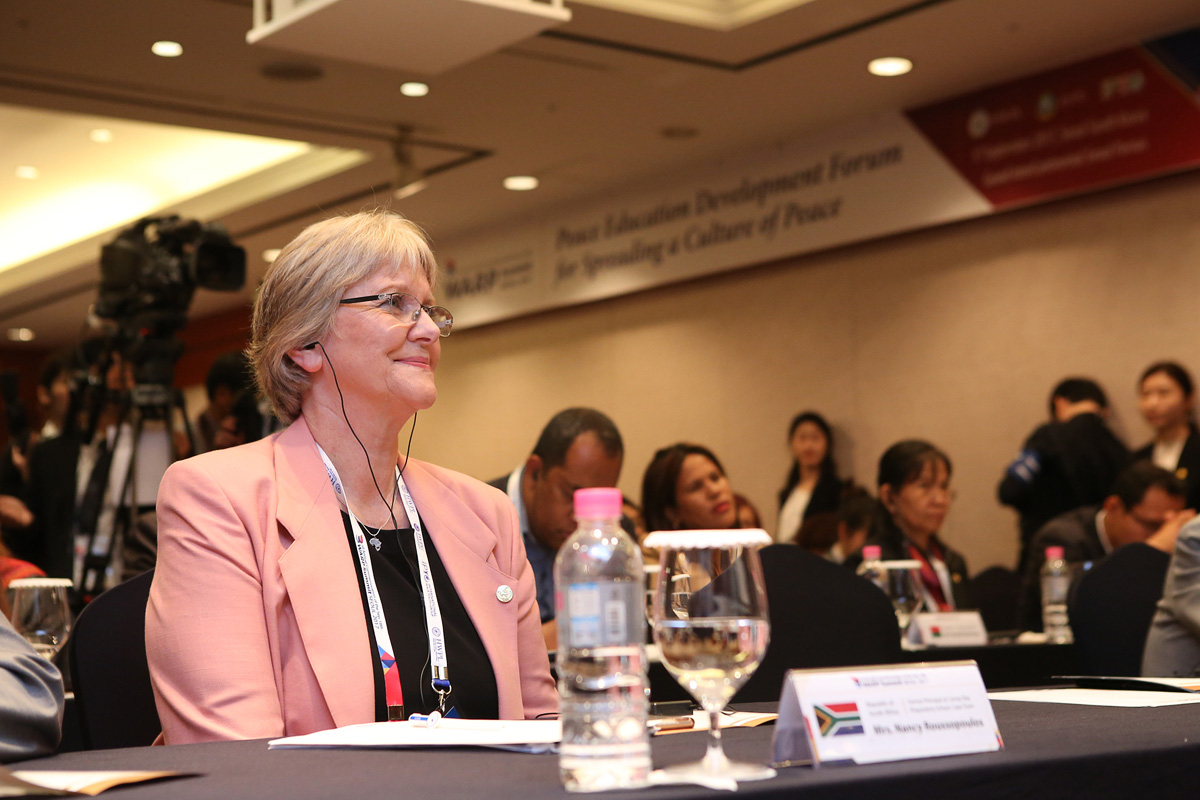
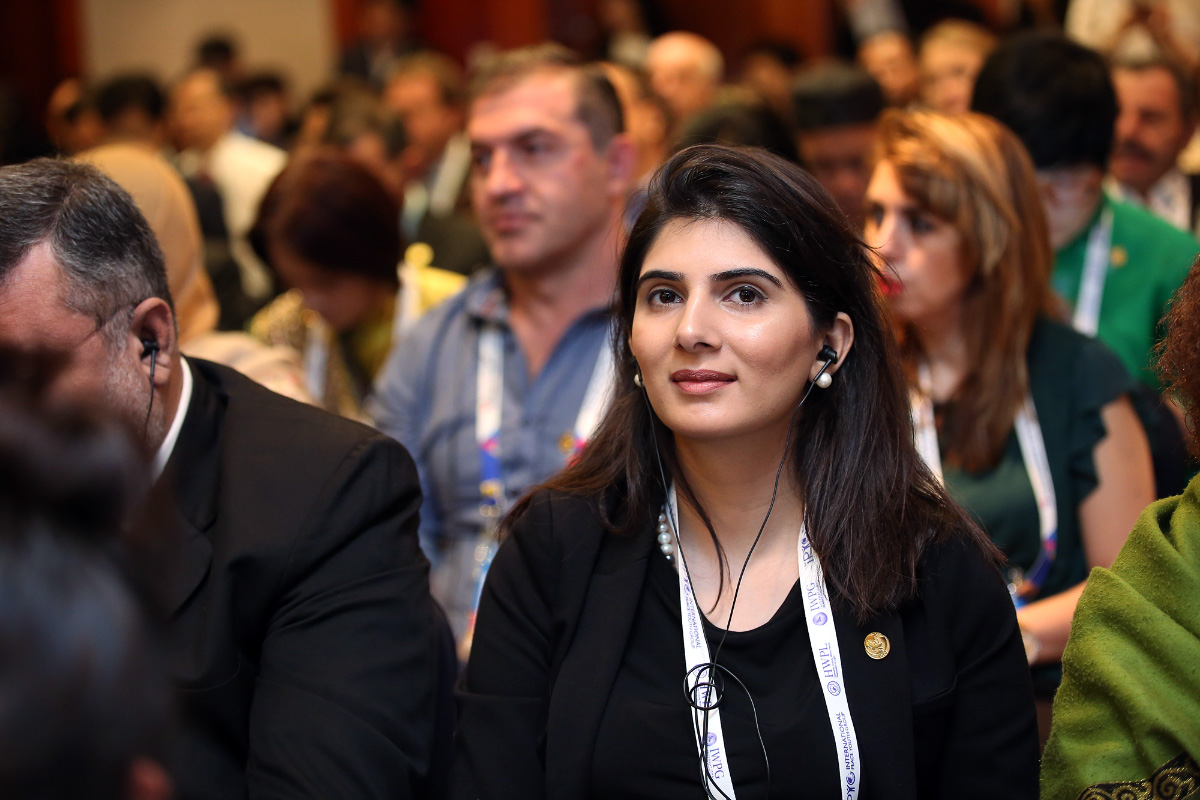
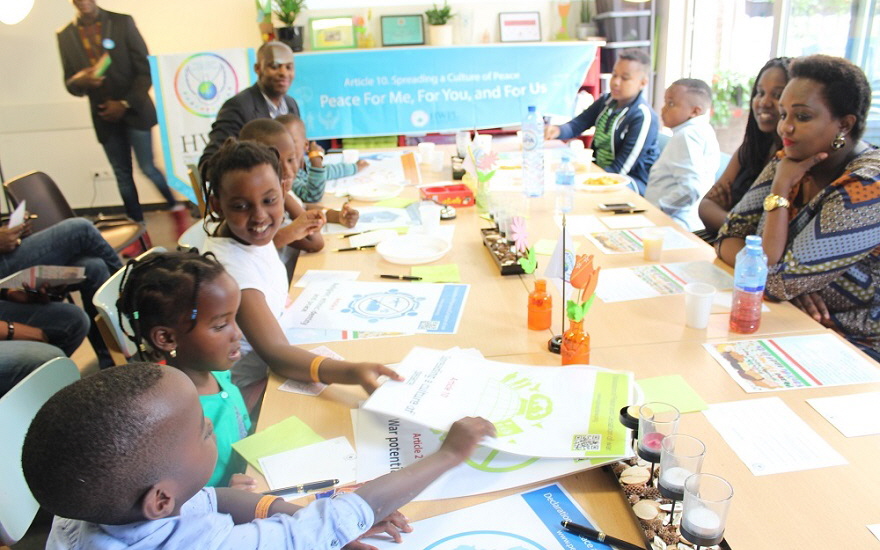
The global village where people of different nationalities, ethnicities, religions, and culture can live together in harmony functions under the name of diversity, which can be simplified as the acknowledgment and acceptance of the differences between individuals and groups. When diversity cannot be overcome, that is, when people are unable to cooperate and live together in harmony, it must be understood that this signifies the absence of the Values of peace.
HWPL peace education aims to help people discover the more humane aspects of communal coexistence and the capabilities critical for attaining such, and is conducted through the study of the basic requirements that all humanity must uphold for the achievement of peace.
Therefore, students are provided with the opportunity to not only cultivate their inner selves, but, moreover, learn to live harmoniously with the whole of humanity. In addition, the world of peaceful co-existence can be started when we carry out these values expressed as the core of peace education. In this manner, the capacity and role of educators for practically implementing this type of education are quite significant.
Through the theme of Value Integrated Education and in-depth group discussion held in the form of a workshop at the second session, participating education specialists who have gathered from all around the world will be sharing implementation plans for the development of peace education curriculums in schools and educational institutions worldwide.













